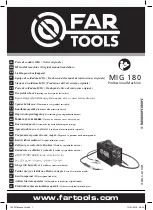
4a
4b
4c
4d
© 1995-2009 Energy Saving Products Ltd.
By locating the vents in this position, there will now
be horizontal airflow. Caution should be exercised when
locating vents in the horizontal position. Avoid placing
vents directly below sinks or other locations people will be
for extended periods of time.
Fig. 04 - Rough-In Cap Installation
4a
- Rough-In Cap fits on Rough-In Boot
4b
- Rough-In Boot installed with a Rough-In Cap
4c
- Floor installed Rough-In Boot
4d
- Wall installed Rough-In Boot
Fig. 05 - Trim the edges for kick spaces
Vent caps are used during construction to prevent
damage during construction from drywall dust, saw
dust, stipple ceiling, paint and other small particles
from clogging and damaging the and Rough-in Boot
and Fan coil unit.
In floor applications simply place the cap over the
boot before installing the boot. In ceilings or sidewall
applications it may be necessary to tape the cap on to
the Rough-in boot hold into place prior to installation.
To prevent damage during construction, do not cut out
the Rough-In Caps until the vent plates are ready to be
installed.
Installing Vents in Kick Spaces
In kitchens and bathrooms, it is sometimes hard to find
a “low traffic area”, so an alternative is to locate the vents
in the kick space under the counters. Our Vent plates
have a 4”
(102mm)
and 5”
(127mm)
diameter, which may not
fit in all kick spaces without trimming. This can easily be
done by trimming the top and bottom of our vent plate so it
fits.
HE outlets are not recommended for kick spaces.
The easiest way to install the round vent plates in the
kick space is to trim off two edges of the plate.
(Fig. 05)
.
Module OTL
Hi-Velocity Outlet Installation (2/2)
Module OTL Hi-Velocity Outlet Installation (2/2)
Installing the Rough-In Boot
Once a suitable unobstructed location has been
chosen for the vent placement, use a 3”
(76mm)
hole saw
to drill an opening large enough for the Rough-In Boot
with a Rough-In Cap
(Fig. 03)
. For HE, use 3
3/4”
(94mm)
hole saw.
Fig. 03 - Drill a 3”/3
3/4
” (76mm/95mm) hole
Before securing the Rough-In Boot, make sure to
use a Rough-In Cap (Fig. 04).








































